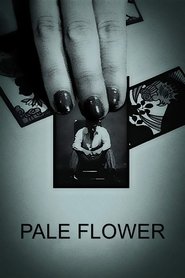Almost shockingly modern, coming out years before Le Samouraï (1967), and, now that I think of it, the Japanese ingénues of Quentin Tarantino etc.
As Muraki stabs a rival gang boss to death in a public restaurant while Saeko observes with petrified awe, Shinoda’s imagery specifically evokes the horrific and graphically photographed onstage assassination of left-wing political leader Inejiro Asanuma in 1960, even as the baroque operatics of the soundtrack cut the moorings of the contemporary in search of some timeless state of orgasmic, annihilating grace.
— Chuck Stephens (Criterion)

